EXPLAINED: Understanding one of the most chaotic, controversial title showdowns in F1 history

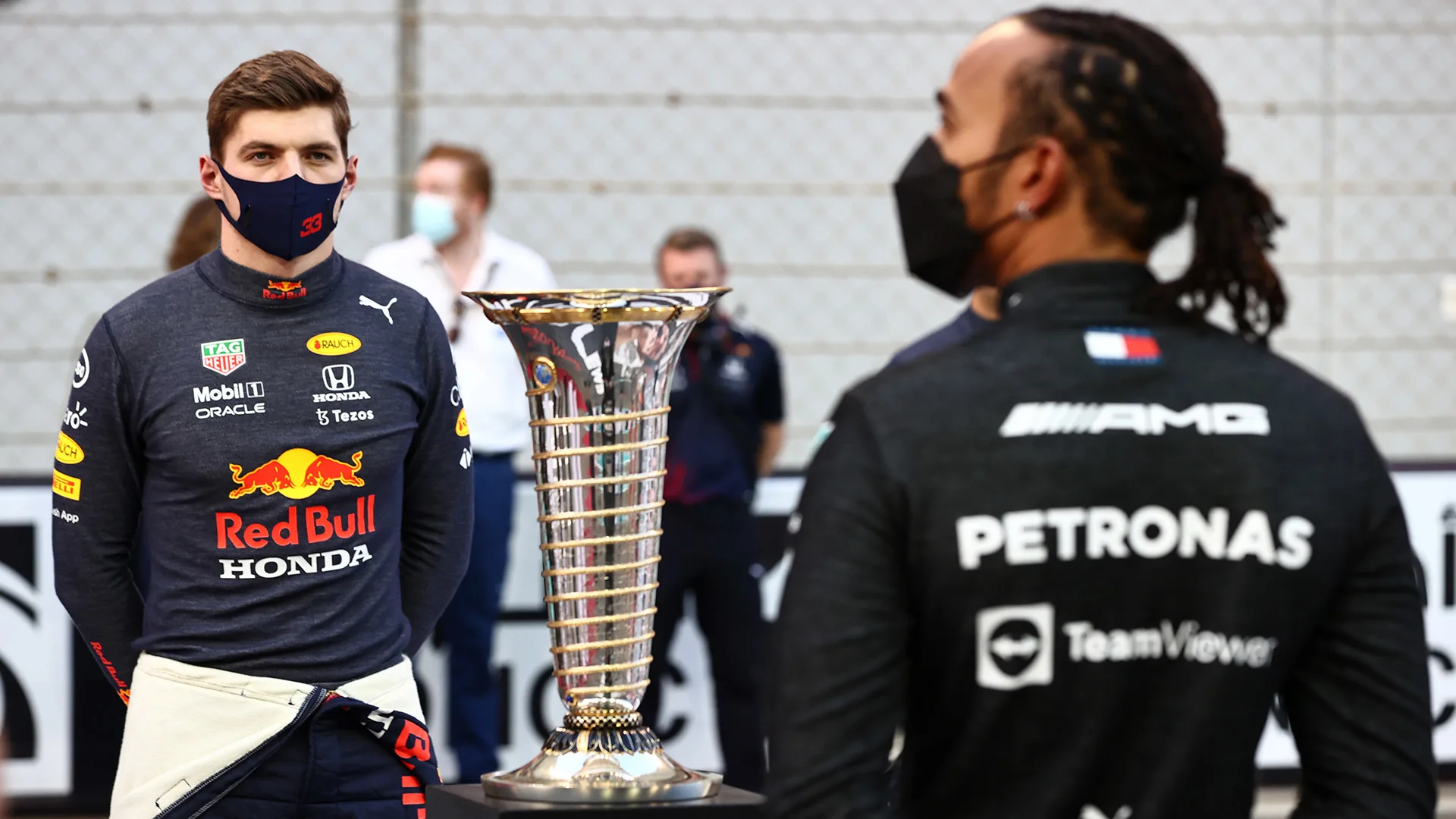
In some ways, it shouldn't have been a surprise that a remarkable see-sawing title fight was settled by a remarkable see-sawing finale. After 1,296 laps, it all turned on the 1,297th and final. For two hours, Lewis Hamilton was on course for an unparalleled eighth title. But one lap from the end, one lap from history, it all swung – and it was Max Verstappen who emerged triumphant in both the race and the championship.
Make no mistake, Verstappen deserved this title. But so too did Lewis. Both men drove sublimely all year, their level never dipping below phenomenal. But one man had to win – and one had to lose. Why, then, was the manner in which that happened so controversial? Why did it produce such ill-feeling and rancour that the stewards were involved? And where does the sport go from here?
As Verstappen kept repeating after clinching his first crown, only one word summed it up – 'insane'. We break down what happened on a night that will now forever be etched into F1 history...
Hamilton in control – until a twist
After a strong Saturday for Verstappen, Sunday started in the best possible fashion for Hamilton. Taking the lead on the medium tyre – and retaining it on the first lap despite Red Bull disputing the fact he cut Turn 7 – meant he was in the box seat.
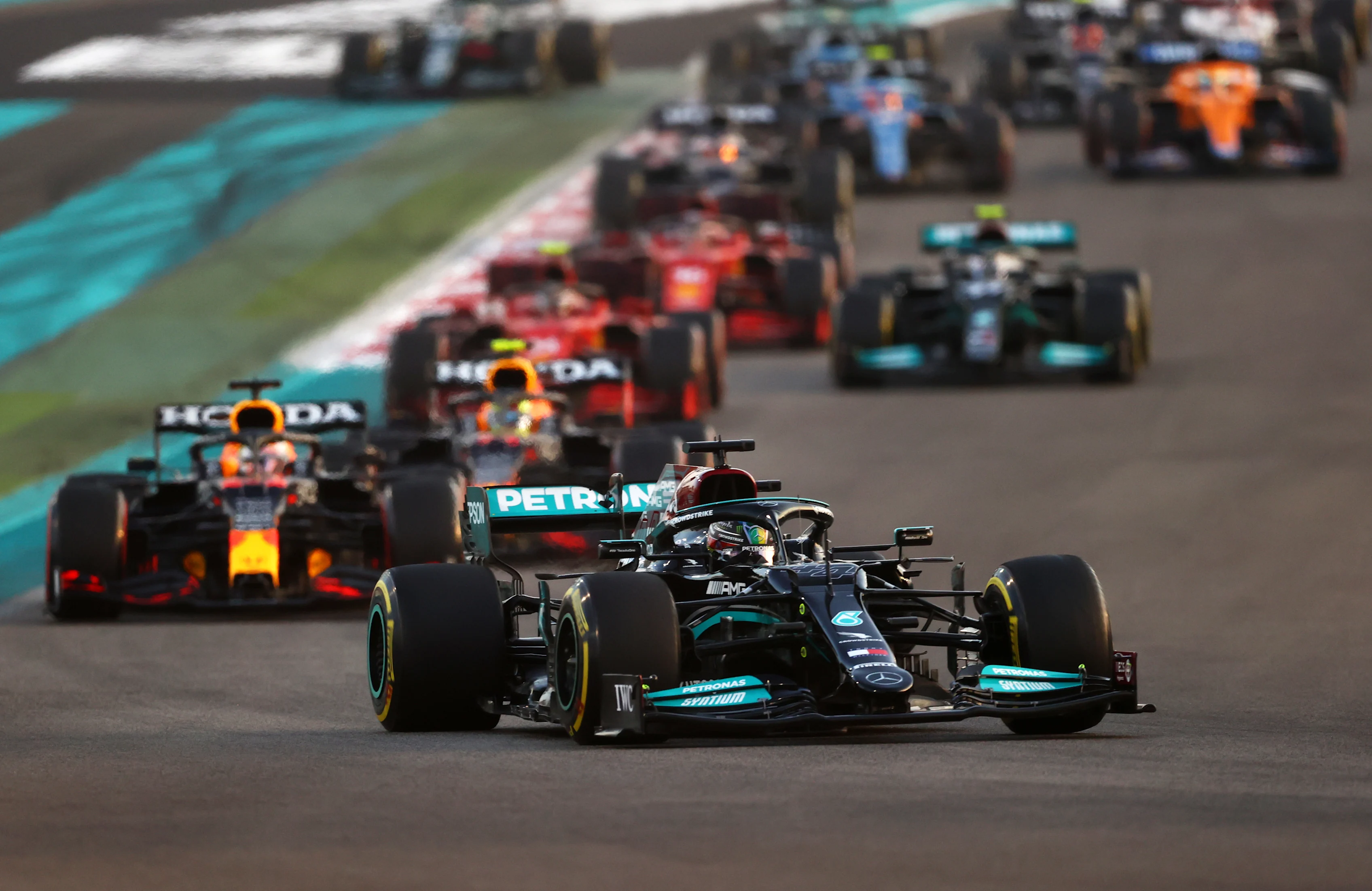
The first lap looked ever-more crucial as Hamilton comfortably extended his lead, and even some incredible defending from an off-strategy Sergio Perez (who was called a “legend” by Verstappen for his work) didn’t derail what looked like serene progress to the title.
Verstappen made a pit stop for fresh hard tyres under a Virtual Safety Car when Antonio Giovinazzi stopped on track, but still couldn’t get the gap to Hamilton under 10 seconds. And then Nicholas Latifi hit the wall at Turn 14 and everything changed.
What options did race control have when Latifi crashed?
There were just five full laps remaining when Latifi spun in the dirty air behind Mick Schumacher, with his damaged car sitting right on the racing line on the exit of Turn 14. A Safety Car was the bare minimum that race control could turn to.
A VSC wasn’t sufficient as the car needed to be removed by crane, and there was also a small brake fire to put out initially.
The other option was to use a red flag and halt the race, as was seen in Azerbaijan when Verstappen suffered a tyre failure. That would have given more time to clear the car away and clean the track, while allowing teams and drivers to change tyres and make repairs before a grid restart for four racing laps.
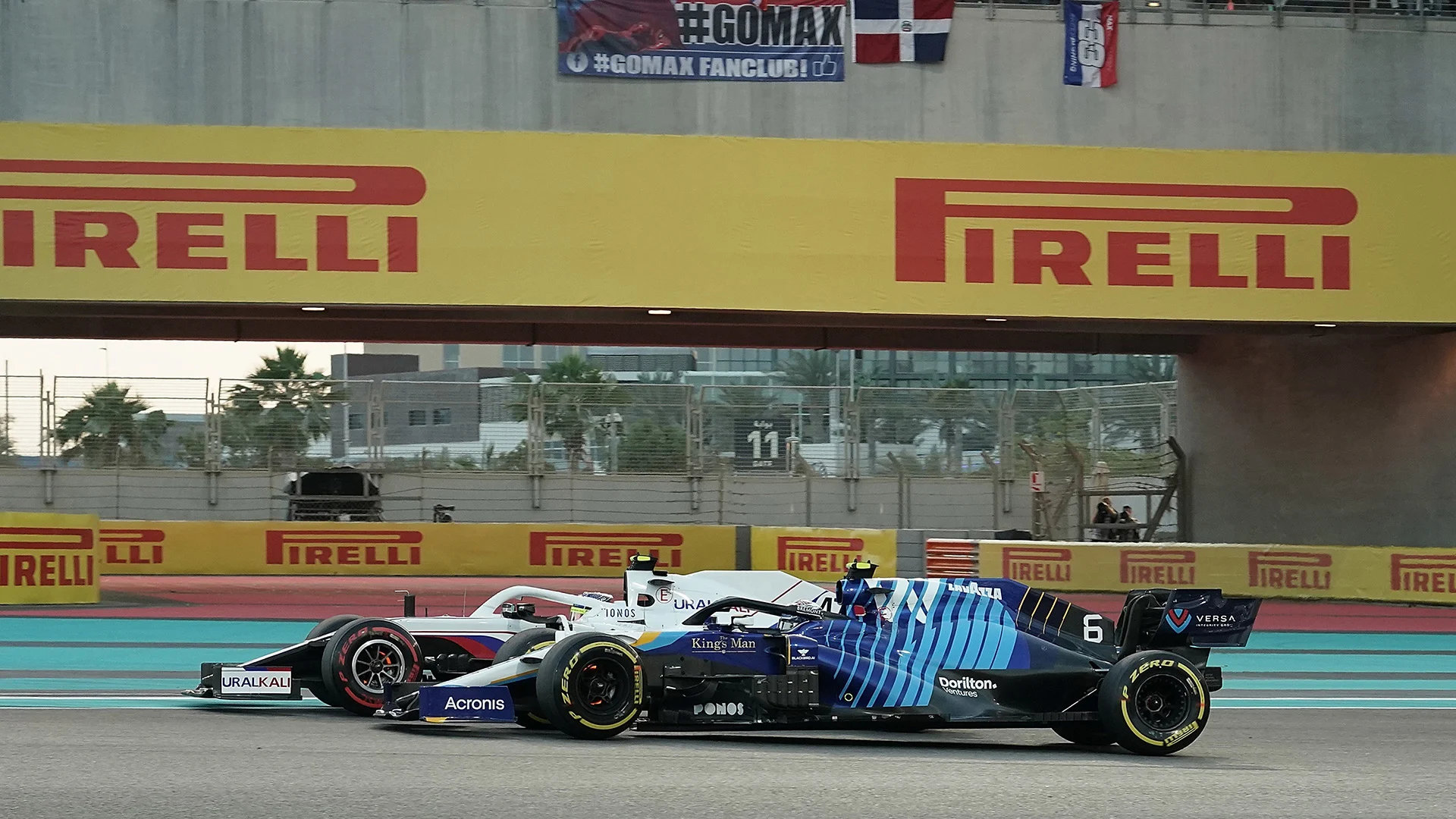
But the red flag was used in Baku due to the amount of debris and the fact the race wouldn’t restart without it. In Abu Dhabi, a restart was still possible – if admittedly not a certainty – from the moment Latifi crashed.
The restart and why it was so controversial
As had been the case under the VSC, Hamilton was not far enough clear of Verstappen to be able to make a pit stop and emerge ahead, and Red Bull would have done the opposite to Mercedes regardless. So giving up track position wasn’t an option in case the race didn’t restart, and Hamilton had to stay out.
Red Bull then took the opportunity to pit Verstappen for a new set of soft tyres that would be extremely quick if there was a restart, but in doing so, a train of three lapped cars between him and Hamilton before the Safety Car interruption grew to five.
With the laps counting down while the car was cleared, allowing all lapped cars to overtake the Safety Car and get safely clear of the pack before a restart - a standard procedure in F1 - became less and less realistic, so the teams were told by race control that no cars would be allowed to un-lap themselves in order to ensure the race could resume.
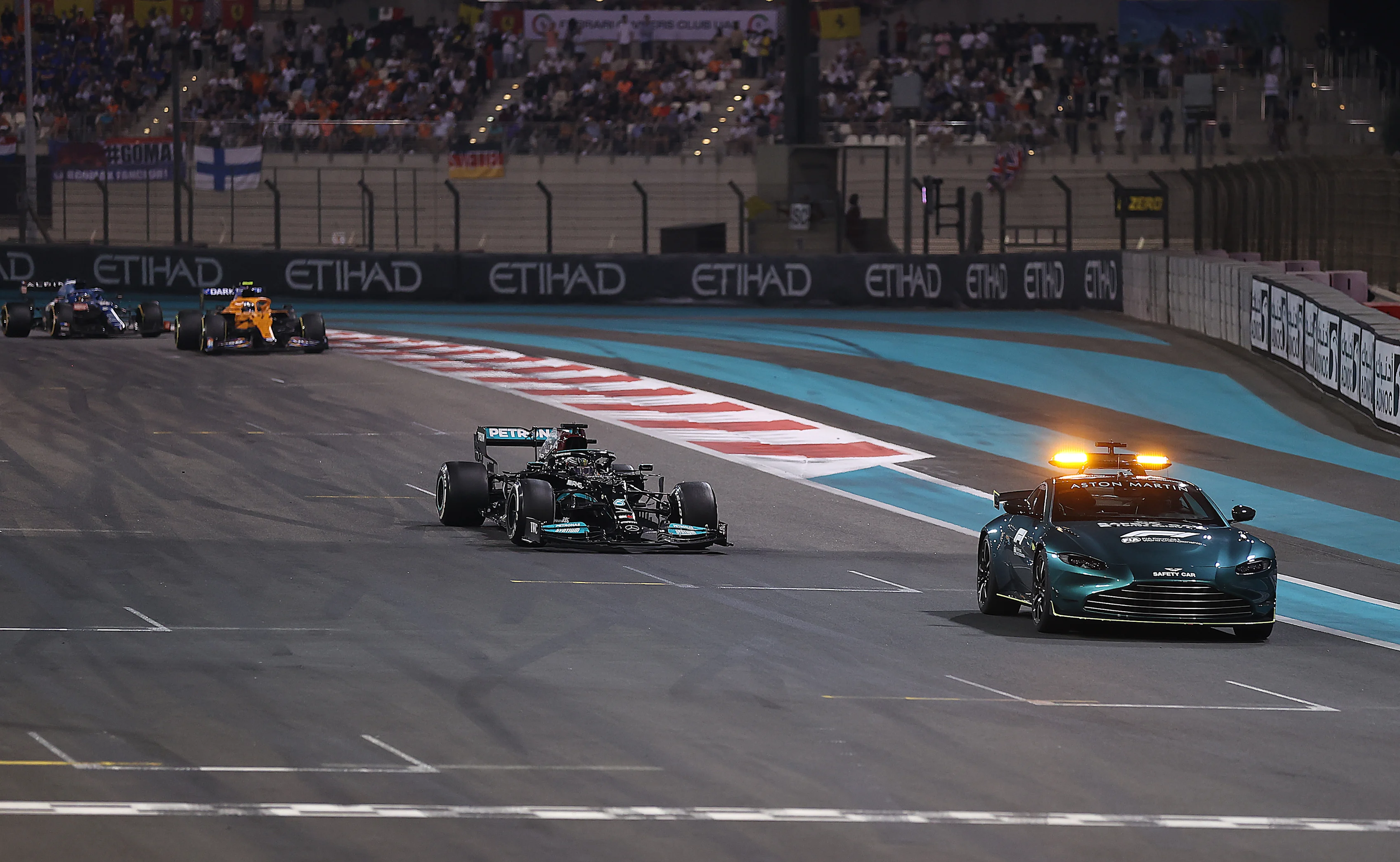
But with the track clear as the Safety Car-led pack started the penultimate lap, race control then decided to let selected cars – the five between Hamilton and Verstappen in first and second respectively – un-lap themselves.
At this point, Mercedes thought they’d won the title, because the regulations state that after cars are allowed to overtake the Safety Car, the Safety Car will come in at the end of the following lap (i.e. at the end of the final lap, so there would be just one racing corner).
Instead, race control decided to bring the Safety Car in immediately, to ensure the Grand Prix could finish with an entire racing lap.
HIGHLIGHTS: Relive Hamilton and Verstappen’s dramatic fight in the Abi Dhabi GP
The final lap
That decision meant Verstappen started the final lap directly behind Hamilton and on much fresher, quicker soft tyres. DRS was also disabled due to the restart, so he quickly took advantage by bravely diving down the inside of Hamilton into Turn 5 to take the lead.
With better grip he could pull off such a move, and then he cleverly knew he’d have far more traction onto the pair of back straights, giving him a better chance of defending. Once he held Hamilton off at Turn 6 and again at Turn 9, he had it won and pulled away in the final sector.
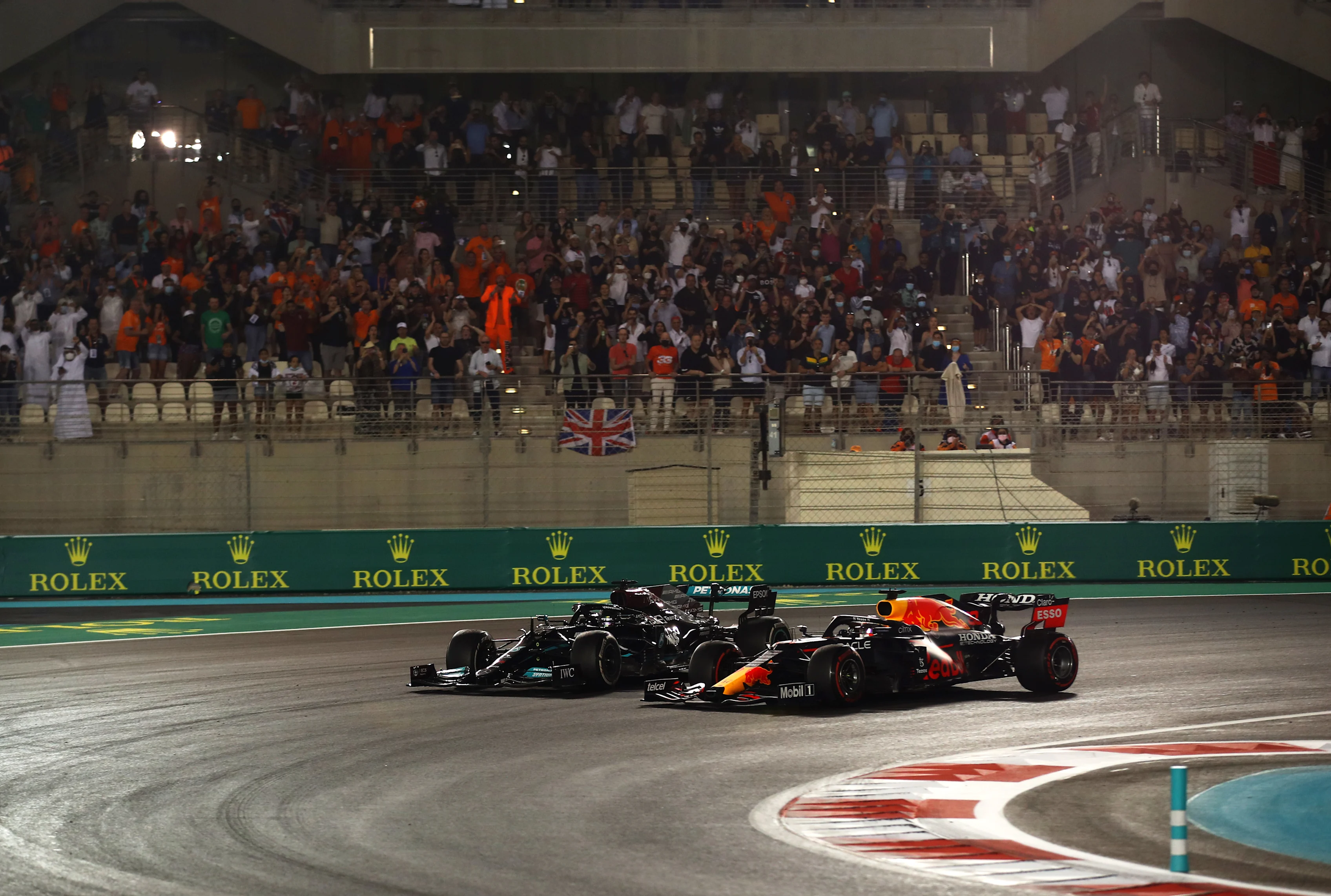
Why were Mercedes so upset?
Mercedes protested on two fronts straight after the race, with the first relating to Verstappen’s driving behind the Safety Car. As Hamilton backed the pack up before a restart, Verstappen edged ahead a few times when trying not to be caught out. The margins were tiny, but Mercedes saw an opportunity to try and argue a rule was broken.
In reality, that was just an extra attempt to try and reverse the final result, with Mercedes feeling particularly hard done by about the way the race was restarted. The wording of the regulations – in their view – suggests either no cars should have been allowed to un-lap themselves, or the whole field should have, and the race finished under Safety Car.
Instead, a selection of cars were told to do so, while Red Bull’s gamble to pit meant Verstappen held the advantage in that scenario.
What did Mercedes say?
“Michael, this isn’t right,” Toto Wolff said to Race Director Michael Masi over team radio before the restart, adding: “No Michael! No Michael, no! That was so not right!” when Verstappen took the lead.
"You need to reinstate the lap before, that's not right,” Wolff said after the race.
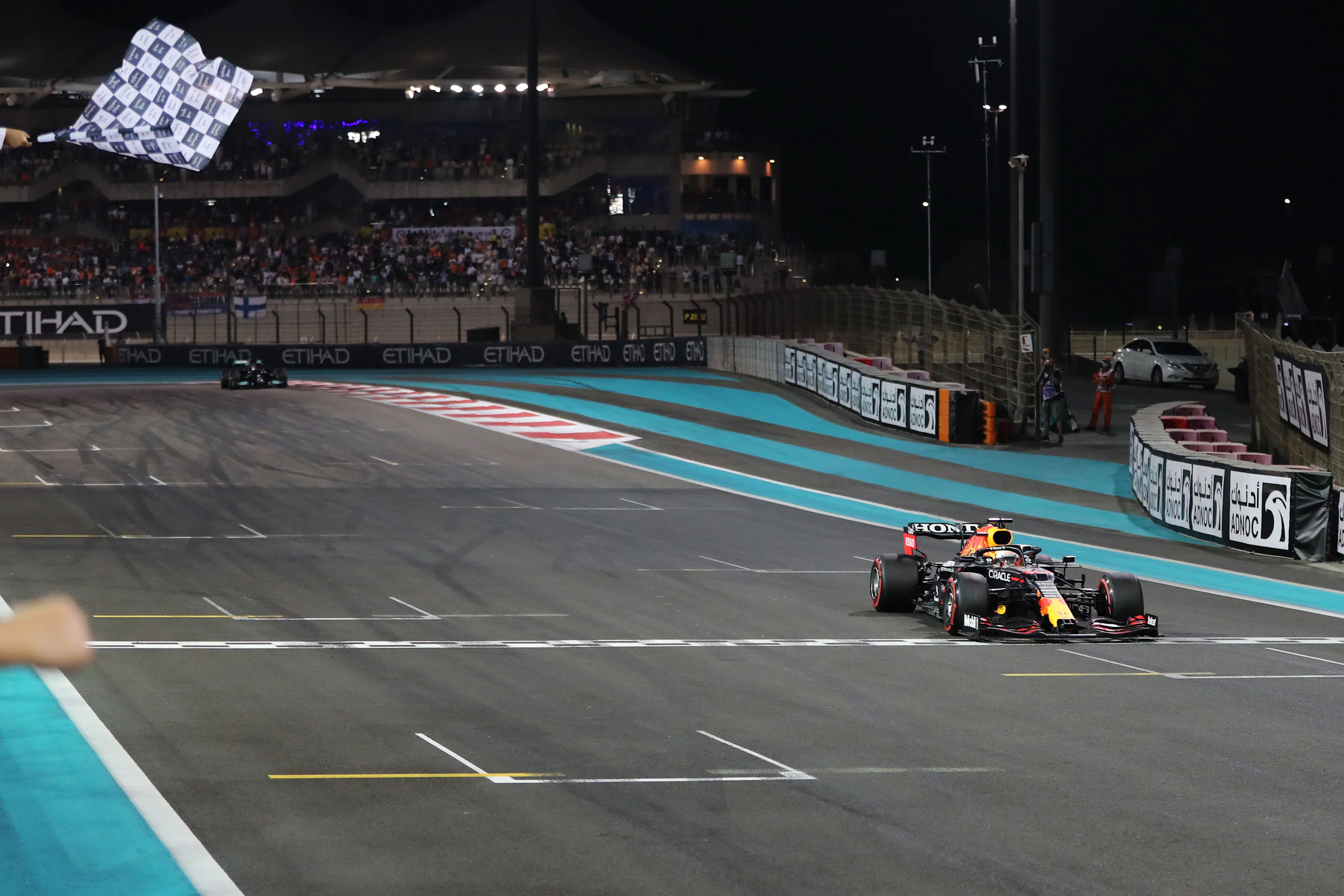
There was no official comment from the team, with Hamilton’s only response coming over team radio after being passed by Verstappen on the final lap, saying: “This is getting manipulated, man!” to which race engineer Pete Bonnington replied, after Hamilton crossed the line: “I’m just speechless, Lewis. Absolutely speechless.”
What did Red Bull say?
Red Bull celebrated Verstappen’s win and then were called to the stewards over the two protests lodged by Mercedes, both of which were dismissed. Team Principal Christian Horner then stated he felt the right decisions had been made.
“We never wanted to end up in front of the stewards, there was obviously a lot of debate before the race,” Horner said. “As it turns out, it was obviously very different after the race. We don't go racing with barristers and so on – it was a shame it ended up there but the stewards made the right call.
“We have talked about 'let them race'; Niki Lauda [Mercedes’ late Non-Executive Chairman] was the guy who pushed hard for it and we've always talked about not finishing racing under Safety Cars, the Race Director in difficult circumstances made absolutely the right call and strategically we got it right.
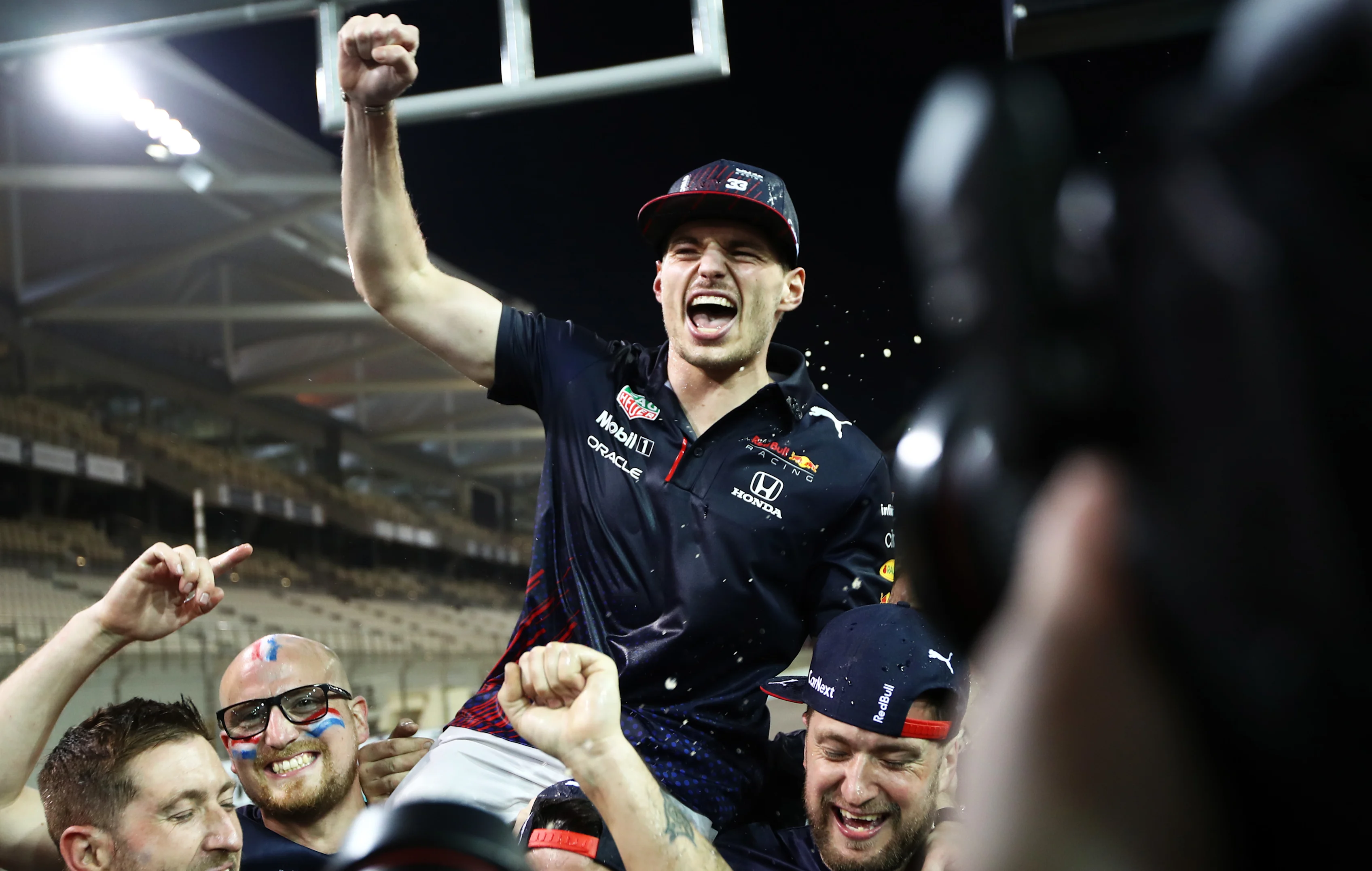
“We needed the intervention from the racing gods and thank you very much Nicholas Latifi. The Safety Car came at a crucial moment in the championship. It was an important strategy call. The other discussions are a distraction.
“Mercedes made a mistake by not pitting with the Safety Car. We made the right call, [Max] made it work, we used it to our advantage, he made the pass, he’s the world champion.”
READ MORE: ‘It was an emotional rollercoaster’ says Horner after thrilling Verstappen title win
Where do we go from here?
Mercedes have a decision to make on whether they will push ahead with an appeal against the decisions. They lodged their intention to appeal on Sunday night after both protests were dismissed, and have 96 hours from that point to either confirm or withdraw.
Should they proceed, a case would be heard by the FIA International Court of Appeal in the coming weeks, with Red Bull likely to also be present as an interested party.
For F1, a new era has been ushered in over the course of this season. Both drivers deserved to win the championship and the fact that only one could shouldn’t overshadow what a stunning battle they delivered.
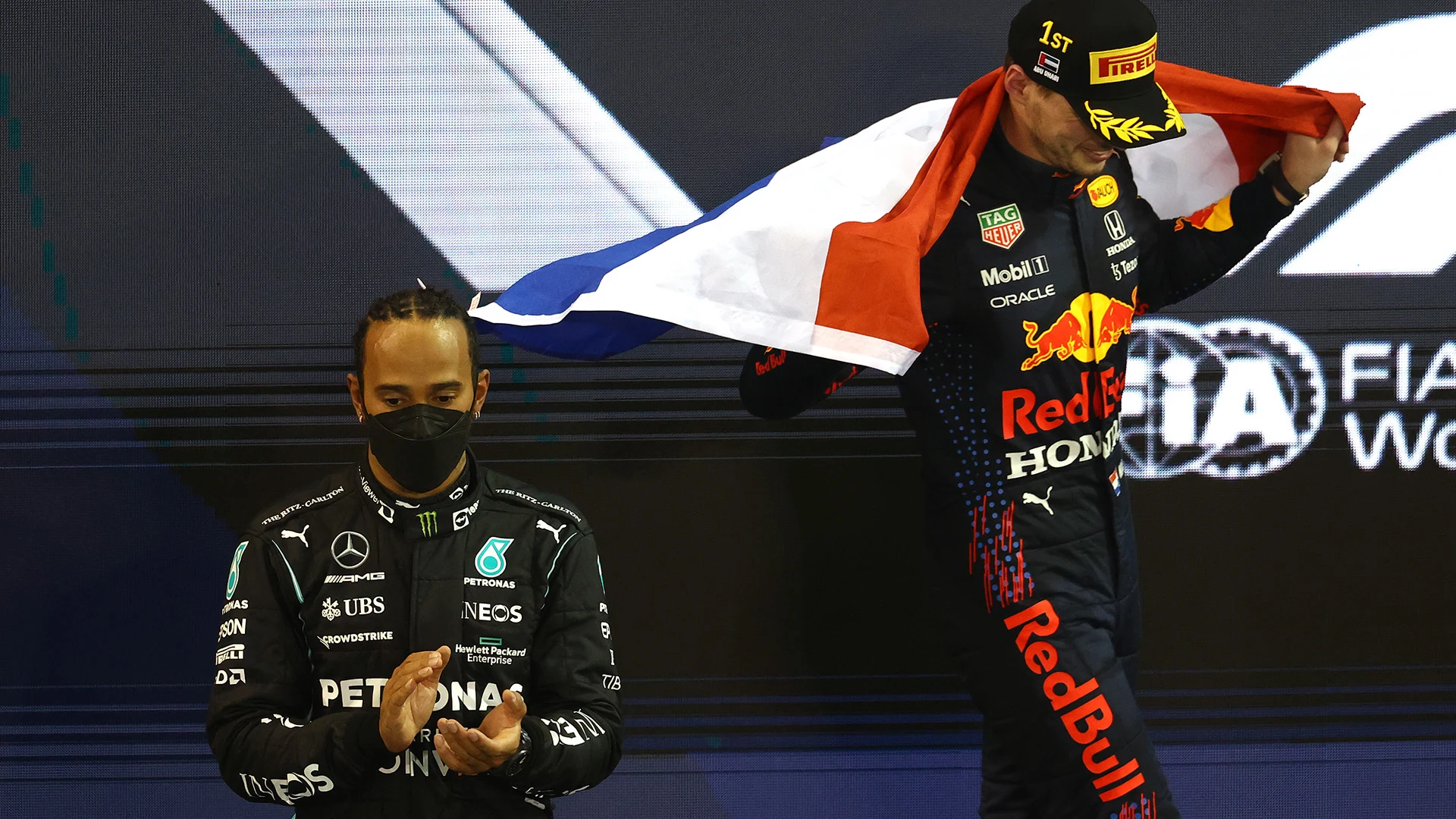
Verstappen has joined Hamilton as a world champion in a World Championship-calibre team, and prevented him securing a record-breaking eighth title. Until now, Verstappen hasn’t had the car to consistently challenge, so we wait with bated breath to see if the two teams are closely-matched again in 2022, and if they are, then Hamilton will look to prove that this new era isn’t a changing of the guard moment in F1, but more the start of a thrilling rivalry.
A deserving champion
There’s no doubting Verstappen is a deserving world champion, finally getting his hands on a title that appeared inevitable from the moment he stepped into a race-winning car in 2016. And Hamilton, too, produced a season worthy of the title in any year.
That’s something we should all appreciate about the two drivers that fought wheel-to-wheel – inches apart – on the very final lap of the very final race.
At times they got too close, but that was a sign of how hard each was pushing the other. And that battle took them to incredible heights and delivered one of the most sensational seasons in Formula 1 history.
Next Up
Related Articles
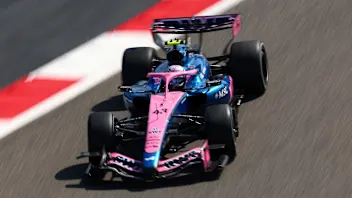 Alpine boosted by early signs from ‘much better’ 2026 car
Alpine boosted by early signs from ‘much better’ 2026 car.webp) Why Audi's new-look bodywork in Bahrain got people talking
Why Audi's new-look bodywork in Bahrain got people talking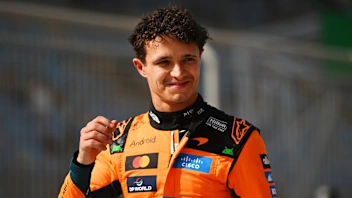 Norris pleased with ‘good learning’ in Bahrain
Norris pleased with ‘good learning’ in Bahrain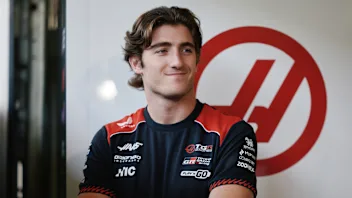 Doohan excited for ‘fresh start’ as Haas reserve
Doohan excited for ‘fresh start’ as Haas reserve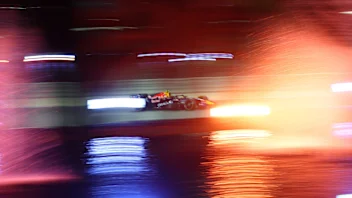 What we learned from Day 2 of the first Bahrain test
What we learned from Day 2 of the first Bahrain test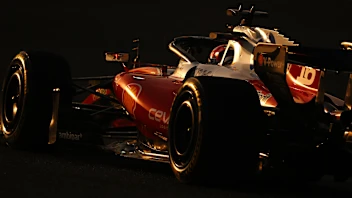 Leclerc leads Norris on second day of Bahrain testing
Leclerc leads Norris on second day of Bahrain testing